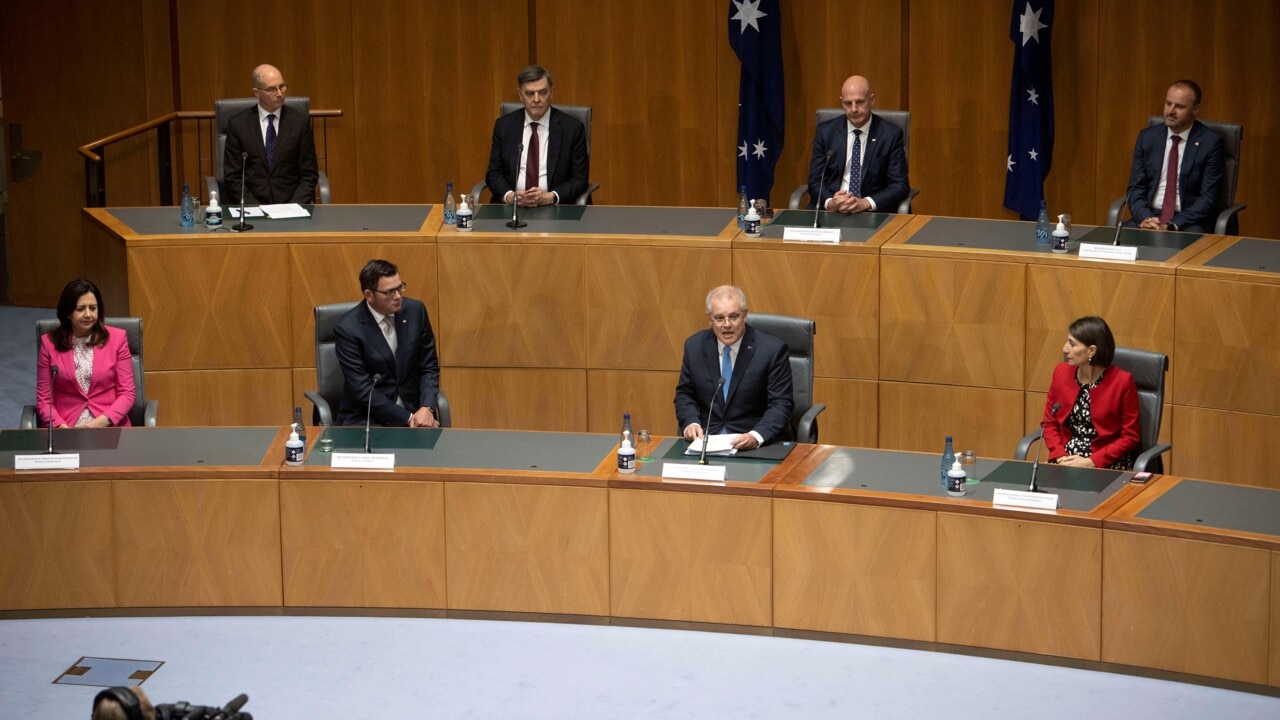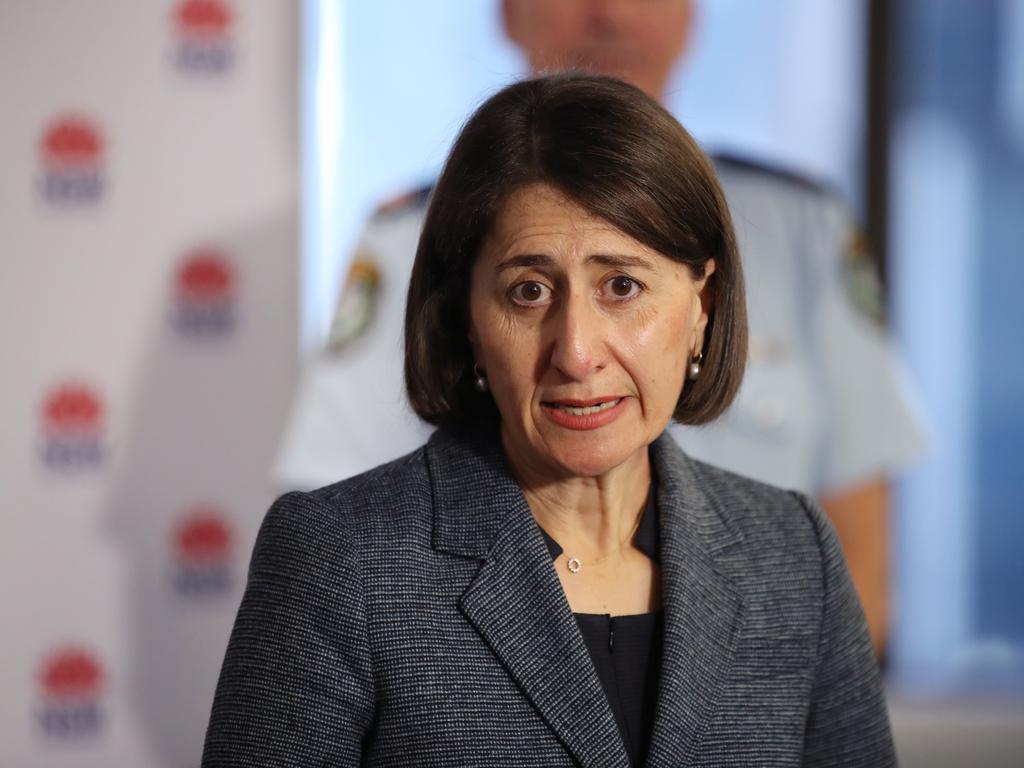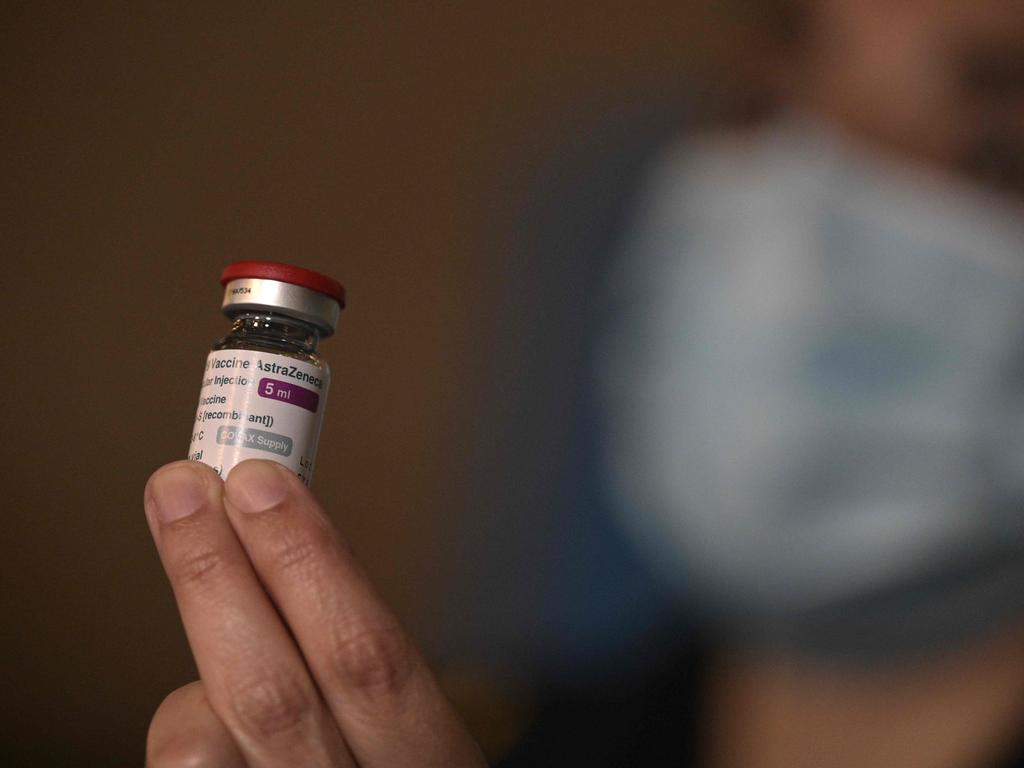Coronavirus: vaccine mix-and-match immunity hope
The nation’s top advisers are monitoring trials seeking to establish whether a second dose of a different vaccine boosts immunity.

The nation’s top immunisation advisers are monitoring emerging evidence on “mixing and matching" vaccines as international clinical trials seek to establish whether having a second dose of a different type of vaccine boosts immunity.
Countries including Canada, France, Spain and Norway are pursuing mix-and-match vaccine strategies as initial studies indicate mixing different vaccine types may be beneficial for boosting immunity.
However, the Australian Technical Advisory Group on Immunisation (ATAGI) says there is not yet enough evidence on the effects of mixing vaccines and is closely watching the results of a UK trial into mixed scheduling.
The current advice is that everyone in Australia who received AstraZeneca for their first dose should get a second dose of AstraZeneca, even those aged in their 50s. Immunity after one shot of AstraZeneca declines around 16 weeks after the initial shot, and the chances of developing a rare blood clotting disorder are around 20 times lower after the second shot compared to the first, at odds of only around one in 1.5 million.
National cabinet will meet on Monday to discuss the impact on the national vaccine rollout of the new ATAGI advice that the AstraZeneca shot should be restricted to those 60 and over. Health Minister Greg Hunt acknowledged on Friday the daily rate of vaccinations will likely slow in coming weeks as state governments adjust to the new advice and before Pfizer supply becomes more plentiful.
However, Mr Hunt suggested ATAGI’s new advice may result in a higher rate of vaccination in the 50-59 age group, with up to a million people who indicated they were reluctant to get AstraZeneca now happy to receive Pfizer.
Mr Hunt also moved to introduce a new Medicare schedule item that will allow GPs to be paid for consultations with patients to discuss vaccination in the light of the changing advice.
The Victorian government has begun converting patient bookings for AstraZeneca vaccines to Pfizer bookings “as spaces become available” but Mr Hunt urged those aged 50 to 59 to be patient as Pfizer supplies begin to increase from July. There are around 2.1 million people in that age group who have not received vaccinations who will now join the queue for Pfizer.
Australia’s chief nursing and midwifery officer, Alison McMillan, said there were no current plans to consider mixing vaccines. “The evidence is very low at this point in time on the efficacy of that,” Ms McMillan said.
The main clinical trial testing the effect of mixing and matching vaccines is the Oxford Vaccine Group’s Com-Cov vaccine trial, which is studying the use of different combinations of approved Covid-19 vaccines for the first and second immunisation doses. Results of the study of 800 people are expected later this month.

Some smaller studies have indicated mixing and matching may be an effective strategy. Last month, preliminary results from a Spanish trial, known as CombiVacS, of more than 600 people indicated vaccination with both the viral-vector AstraZeneca and mRNA-based Pfizer-BioNTech Covid-19 vaccines triggers a potent immune response.
Mixing different vaccines is a strategy deployed for vaccines against other diseases, notably Ebola. The strategy is known as heterologous prime and boost. In the Spanish study, scientists reported that a Pfizer shot after an AstraZeneca jab appeared to jolt the immune system into producing higher levels of antibodies than in people who received the same type for both doses.
Preliminary results have been reported for a German study of 340 healthcare workers that found getting AstraZeneca first followed by a Pfizer shot resulted in a high number of protective antibodies. That study indicated the number of antibodies produced following AstraZeneca then Pfizer shots provided similar protection to two doses of Pfizer.
The Canadian National Advisory Committee on Immunisation this month advised Canadians who had AstraZeneca for their first dose that they had the option to get Pfizer or Moderna for their second dose. Canada has stopped administering AstraZeneca.







